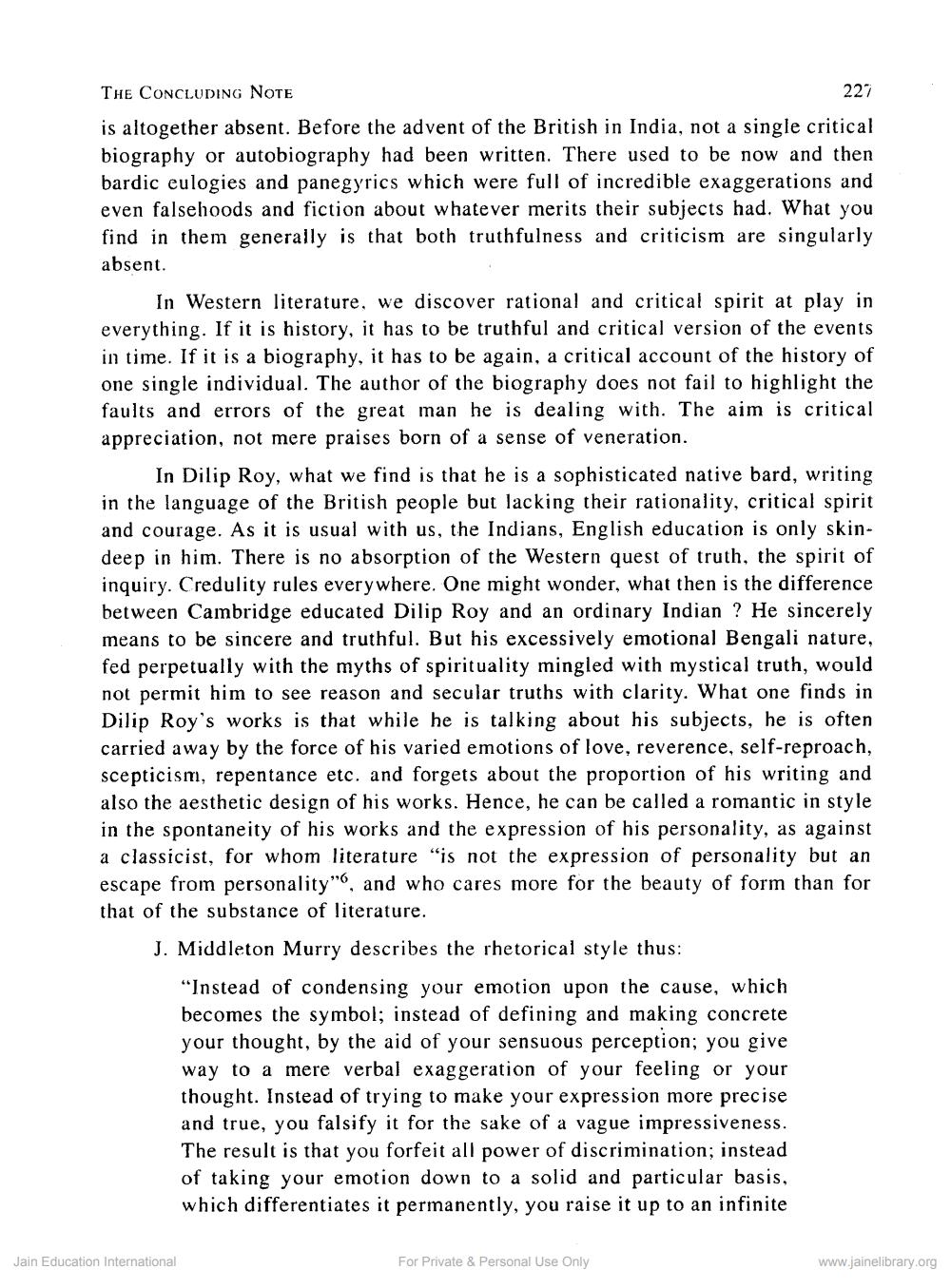________________
THE CONCLUDING NOTE
227 is altogether absent. Before the advent of the British in India, not a single critical biography or autobiography had been written. There used to be now and then bardic eulogies and panegyrics which were full of incredible exaggerations and even falsehoods and fiction about whatever merits their subjects had. What you find in them generally is that both truthfulness and criticism are singularly absent.
In Western literature, we discover rational and critical spirit at play in everything. If it is history, it has to be truthful and critical version of the events in time. If it is a biography, it has to be again, a critical account of the history of one single individual. The author of the biography does not fail to highlight the faults and errors of the great man he is dealing with. The aim is critical appreciation, not mere praises born of a sense of veneration.
In Dilip Roy, what we find is that he is a sophisticated native bard, writing in the language of the British people but lacking their rationality, critical spirit and courage. As it is usual with us, the Indians, English education is only skindeep in him. There is no absorption of the Western quest of truth, the spirit of inquiry. Credulity rules everywhere. One might wonder, what then is the difference between Cambridge educated Dilip Roy and an ordinary Indian ? He sincerely means to be sincere and truthful. But his excessively emotional Bengali nature, fed perpetually with the myths of spirituality mingled with mystical truth, would not permit him to see reason and secular truths with clarity. What one finds in Dilip Roy's works is that while he is talking about his subjects, he is often carried away by the force of his varied emotions of love, reverence, self-reproach, scepticism, repentance etc. and forgets about the proportion of his writing and also the aesthetic design of his works. Hence, he can be called a romantic in style in the spontaneity of his works and the expression of his personality, as against a classicist, for whom literature "is not the expression of personality but an escape from personality", and who cares more for the beauty of form than for that of the substance of literature.
J. Middleton Murry describes the rhetorical style thus:
"Instead of condensing your emotion upon the cause, which becomes the symbol; instead of defining and making concrete your thought, by the aid of your sensuous perception; you give way to a mere verbal exaggeration of your feeling or your thought. Instead of trying to make your expression more precise and true, you falsify it for the sake of a vague impressiveness. The result is that you forfeit all power of discrimination; instead of taking your emotion down to a solid and particular basis, which differentiates it permanently, you raise it up to an infinite
Jain Education International
For Private & Personal Use Only
www.jainelibrary.org




